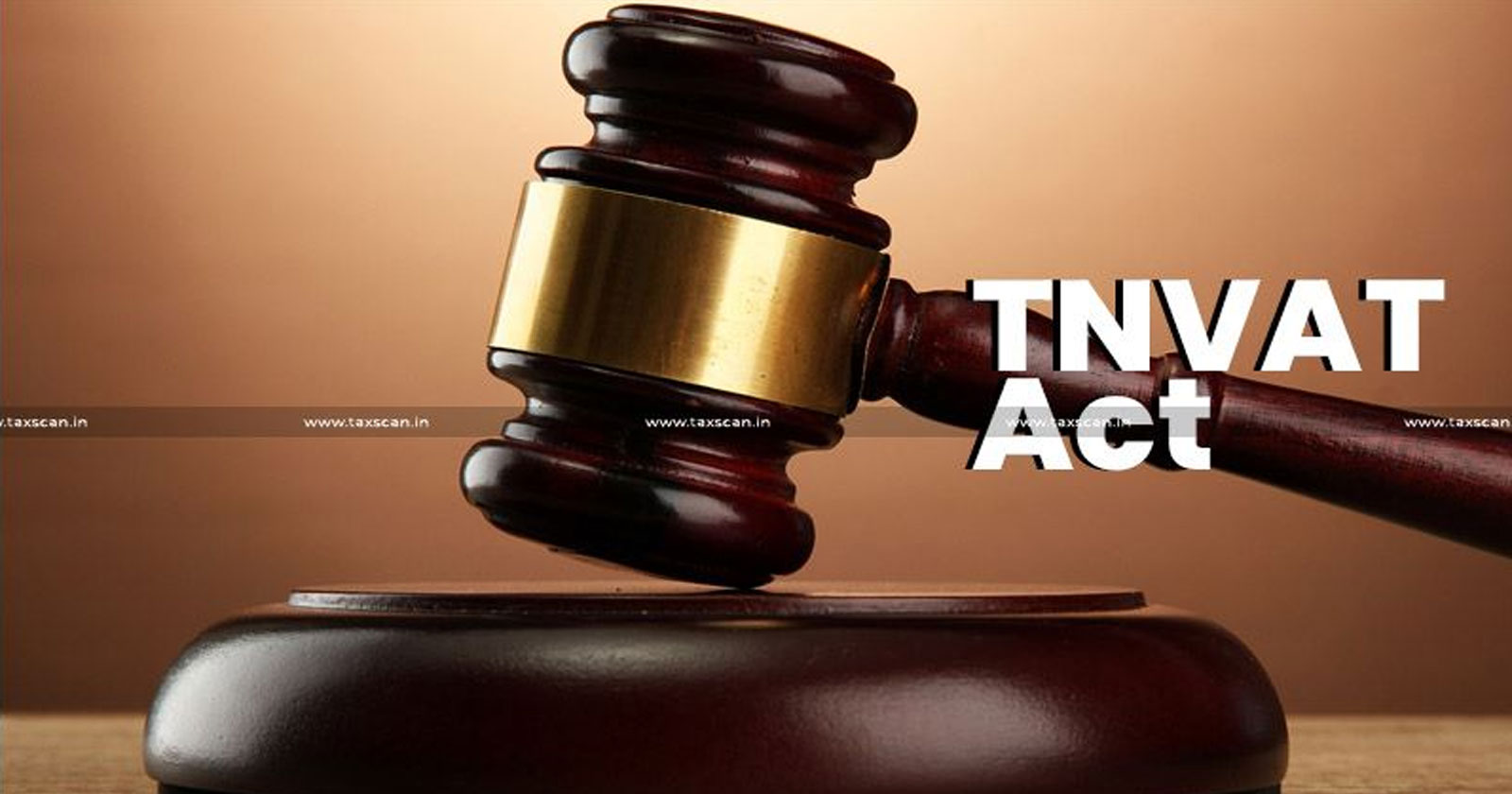Commercial Tax Dept can Exercise Power u/s 25 or 27 of TNVAT Act Even if Assessment Completed: Madras HC [Read Order]
In a recent case, the Madras High Court has held that the Commercial Tax Dept can Exercise Power under section 25 or section 27 of the Tamil Nadu Value Added Tax ( TNVAT )Act, 2006 for summoning documents, even if the assessment is completed

Madras high court – madras hc Tax dept – Commercial tax dept – section 25 – section 27 – TAXSCAN
Madras high court – madras hc Tax dept – Commercial tax dept – section 25 – section 27 – TAXSCAN
In a recent case, the Madras High Court has held that the Commercial Tax Dept can Exercise Power under section 25 or section 27 of the Tamil Nadu Value Added Tax ( TNVAT )Act, 2006 for summoning documents, even if the assessment is completed.
M/s V.R.Muthu & Bros, the petitioner/assessee challenged the impugned summon issued in Form PP calling upon the respective petitioners to furnish the documents. It was submitted that the summons in Form PP under Rule 16(1) of the TNVAT Rules, 2007 applies only to a third party and not to an assessee. The petitioner had filed returns under Section 21 of the TNVAT Act, 2006, and therefore, the assessment was deemed to have been completed on October 31, 2016, for the assessment year 2015–2016 in terms of Section 22(2) of the TNVAT Act, 2006.
It was contended that the power to summon documents or information from an assessee who has filed regular returns could be only by Section 22(3) of the TNVAT Act,ct, 2006. Therefore, the summons is liable to be quashed.
On the other hand, the department contended that the summons had been issued in consonance with Rule 10(11) of the Tamil Nadu Value Added Tax Rules, 2007. Rule 10(11) of the Tamil Nadu Value Added Tax Rules, 2007 states that the method of selection by the Commissioner referred to in subsection (3) of section 22 shall be based on a suitable stratified random sampling method, and such selection shall not exceed twenty per cent of the cases assessed under sub-section (2) of section 22 and intimate the details of such selection to the assessing authority for detailed scrutiny of accounts. The list shall be exhibited on the notice board of the assessment circles and also on the website of the department. The assessing authority shall call for the accounts of those assessees for detailed scrutiny and pass appropriate orders.
As per Section 22(3) of the Act, not exceeding 20% of the total number of such assessments shall be selected by the Commissioner in such manner as may be prescribed for detailed scrutiny regarding the correctness of the returns submitted by the dealer, and in such cases, revisions of the assessment shall be made wherever necessary.
The Single bench of Justice C. Saravanan held that “I see no embargo on the respondent Commercial Tax Department from summoning the respective petitioners to furnish the records. The assessment will be deemed to have been completed only if the petitioners have complied with all the requirements of Section 22(2) of the TNVAT Act, 2006. The return that was to be filed under Rule 7 of the TNVAT Rules, 2007 should be in the prescribed form and should accompany prescribed documents and proof of payment of tax.”
While dismissing the petition, the court held that the issuance of summons is for ascertaining and producing information. Whether the petitioners have complied with all the requirements of Section 22(2) and whether the declarations in the returns filed by the petitioners are correct or not can be ascertained only if records are summoned.
R.L. Ramani appeared for the petitioner and J.K.Jeyaselan appeared for the respondent.
To Read the full text of the Order CLICK HERE
Support our journalism by subscribing to Taxscan premium. Follow us on Telegram for quick updates


